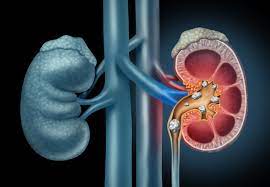What is Kidney Disease?
Kidney disease is a medical condition that occurs when your kidneys no longer function as they should. Chronic kidney disease (CKD) includes conditions that damage your kidneys and consequently reduce their ability to maintain you healthy by carrying out the necessary functions listed. Most of the time, this disease is brought on by your body's immune system reacting to something in your body as a foreign substance. The symptoms of kidney disease vary and depend on how much of the organ has been damaged.
Symptoms of Kidney Disease
Some of the symptoms of kidney disease are occasional fatigue, nausea, constipation, and abdominal bloating or distention. Some people also have problems with their eyesight or have puffiness around the face, although these symptoms are not always permanent. It's important to understand, however, that these symptoms may be indicators of other conditions and if they begin to occur regularly and in quantity then you should seek advice from a doctor.
Cause of Chronic Kidney Disease
A common cause of chronic kidney disease (CKD) is long-term high blood pressure (hypertension). People who suffer from CKD are often advised to reduce their intake of salt and to get regular check-ups with their doctors.
Hypertension can lead to kidney damage in two ways. High blood pressure causes fluid retention in the body, which in turn causes fluid accumulation in the kidneys. And, excess sodium in the body causes kidney cells to swell and make it harder for the kidneys to process the fluids that they are responsible for cleaning up. Chronic kidney disease has been known to occur in people with long-term hypertension.
Types of Kidney Disease and their Causes
Other types of kidney disease include the following:
peritoneal mesothelioma, pericardial effusion (PEM), pericarditis, and pleural effusions.
Peritoneal mesothelioma: is caused by exposure to asbestos. Pericardial effusion, on the other hand, occurs when the walls of the heart become inflamed because of narrowed arteries and is thus the leading cause of death in the medical field.
Pericardial effusion (PEM): is caused by infections that occur in the lower portion of the abdomen. The most common infections from which PEM may arise are urinary tract infections, viral infections, and parasitic infections. PEM may also be caused by chronic inflammation of the abdominal cavity due to diabetes or systemic sclerosis.
Another important indicator of kidney disease is anemia.
Anemia: can affect many areas of your health and it can even worsen kidney disease. A common cause of anemia is poor blood circulation, either because the blood does not circulate enough through the body or the blood does not transport enough waste products and toxins. People with Cushing's syndrome develop a problem with waste products and toxins not being transported through the bloodstream and thus anemia is caused. Anemia can also be caused by iron deficiency anemia.
Muscle cramps and other urinary symptoms can be caused by toxins building up in the muscles of the urinary system and causing muscle cramping. Some kidney diseases, particularly those that are muscular, can cause a low-grade fever.
These can include fever, dull pain in the lower back, muscle cramping, and loss of bladder control, but in most cases, muscle cramping resolves as the toxins are removed from the body through urine. However, in people with advanced or chronic kidney disease muscle cramping and loss of bladder control may indicate that additional therapy is needed to prevent permanent damage to the kidneys and that kidney failure is imminent.


Comments
Post a Comment